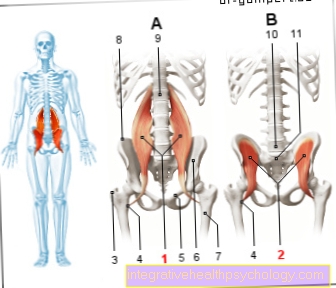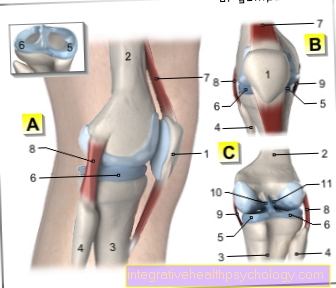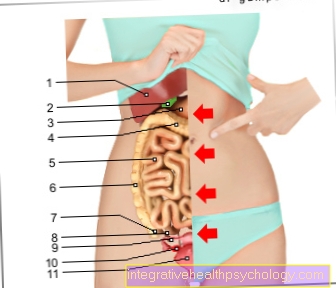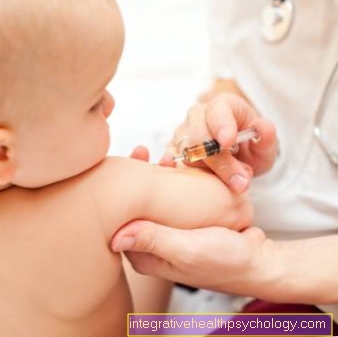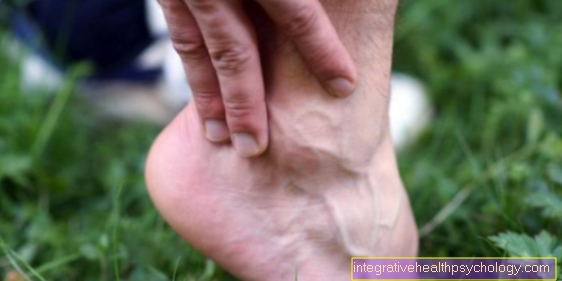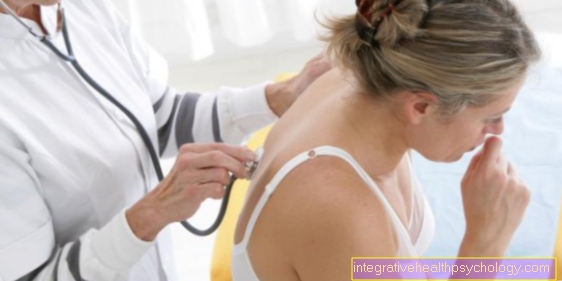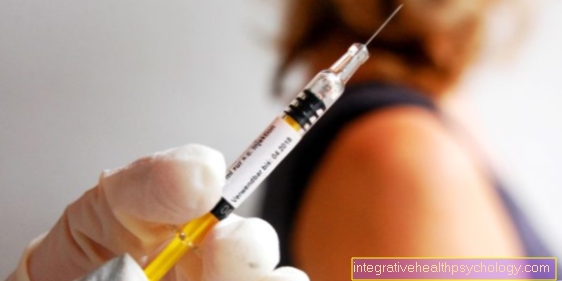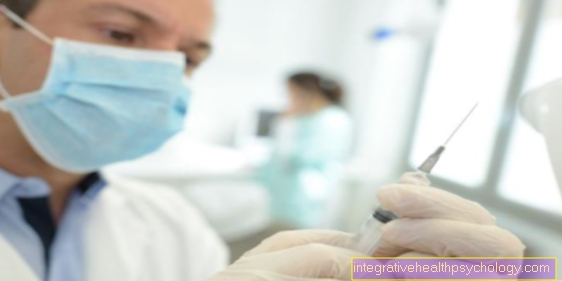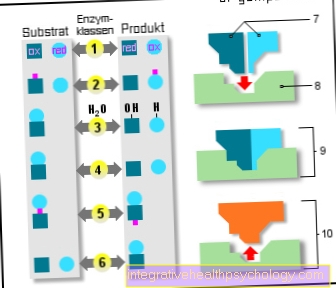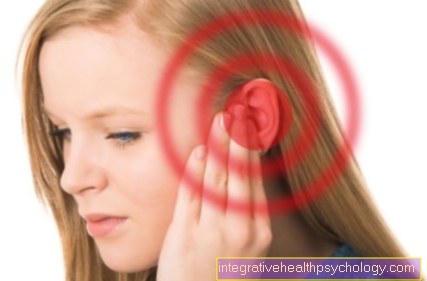U7 investigation
What is the U7?
The U7 examination is one of the 9 early detection examinations (U examinations). Every U-examination is carried out at a certain age of the child.
The U7 examination is the first early diagnosis examination for young children. It is used to detect any diseases or developmental disorders at an early stage and to support the child in growing up healthily. A particular focus of the U7 examination is on the mental and social development of the child.

When is the U7 examination carried out?
The U7 examination is carried out between the child's 21st and 24th month of life.
It is important for two reasons to actually carry out the examination in this age range of the child.
The first is that the times of the U-examinations are chosen so that relevant diseases or developmental disorders can be detected in good time and the treatment achieves the best possible effect. The assessment of the level of development is also best possible if the doctor sees the children at a fixed time.
The other, somewhat more pragmatic reason is that failure to comply with the period can sometimes lead to billing problems with the health insurance company.
That could be interesting for you too: Child development
Which examinations are carried out?
As with the other U-examinations, the U7 also checks whether the child is developing normally and is healthy.
First, the child is given a thorough physical examination. The pediatrician measures the head circumference, height and weight of the child, looks into the mouth, ears and eyes, feels the stomach and checks the mobility of arms and legs.
Then he will deal with the topics of motor skills, social and play behavior and language development. For this, the observations of the parents in everyday life are particularly important. Does your child run from time to time, can he get up from a crouch free-hand, does he enjoy moving? How is the coordination - does it perhaps even begin, like adults, to put one foot on each step? During the examination, the doctor lets your child play with a ball or run backwards, for example, or tests their fine motor skills by having them build a tower of blocks.
Then the pediatrician will ask about the child's social behavior. He is interested, for example, in how your child plays with siblings or in kindergarten, how it treats pets, whether it distinguishes between "my" and "yours" and whether it starts actively with everyday activities such as brushing teeth, washing hair, dressing and Take off, join in.
In relation to language development, it is checked whether the child understands simple words and sentences and whether they are already speaking in two-word sentences. Here the pediatrician may be talking to your child about what they experienced yesterday. Alternatively, a picture book is viewed in which the child is asked to recognize and name things. The child's active vocabulary should be around 100-200 words.
Another important point of the U7 examination is advising parents on issues that will be important for the child in the near future. These include nutrition, accident prevention, promoting language development, vaccinations and caries prophylaxis. The recommended vaccinations can also be carried out as part of the U7.
You might also be interested in: Why should you vaccinate?
How does the U7 work?
The U7 is similar to all other U-examinations. You and your child will be asked into an examination room and then the doctor will first physically examine your child and then assess the level of development. The focus of this early diagnosis examination is on the social and mental development of the child. Therefore, the doctor will ask you many questions, which mainly concern the behavior of your child in everyday life. Of course, the doctor will also look at your child himself, talk to him or give him little tasks.
An important second part of the U7 examination is the advice given to the parents by the doctor. Your child is now at an age where they are becoming increasingly mobile and trying things out. It is important to be aware of potential dangers. Your doctor will certainly be able to give you tips on accident prevention.
Your child's molars are probably slowly pushing up to the surface. Parents can also get valuable advice on the subject of dental care for children in the U7. If you have any questions about your child's development or how you can best support it, don't be afraid to ask! This is exactly what the examination appointment is intended for.
Does my child have to go to U7?
It is not mandatory to go to the U7 examination with your child. However, it is highly recommended for the health of your child. In some federal states, the health or youth welfare office will contact you if you do not attend the U-examinations with your child.
What happens if I go to U7 with my child?
If you go to U7 with your child, all of the examined data (z. B. Head circumference, body weight and height) entered in the yellow U-booklet. The vaccinations are also noted in the vaccination certificate.
You will receive important information on how you can support and encourage your child in the coming developmental steps. You can also make sure that your child has grown up normally and healthy or that your child will be helped as soon as possible if they have problems.
You may also be interested in this topic: U8 examination
Who bears the costs of the U7?
The U7 examination is an early diagnosis examination carried out by health insurance companies.
However, if the examination takes place outside the intended stage of life (21.-24. Month of life) it may be that the health insurance companies have billing problems and no longer want to cover the full costs.
How long does the U7 examination take?
The examination itself should be done thoroughly and takes an average of 15 to 30 minutes.
In the U7 examination, the child is at an age at which it often strangers and screams in eerie situations. This can of course extend the duration of the examination. For this reason, and also to have enough time for any questions, you should plan a generous amount of time in your appointment calendar for the U7 examination.


